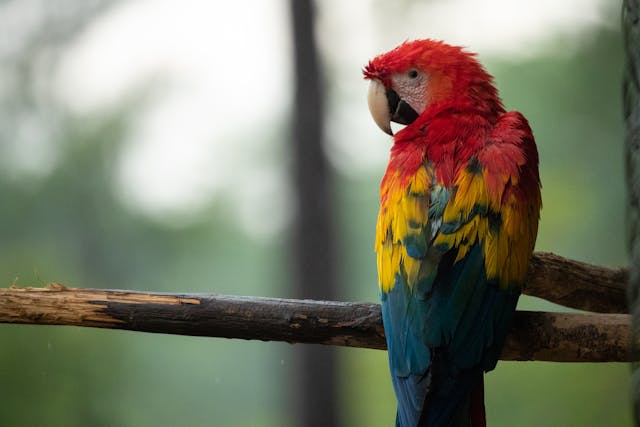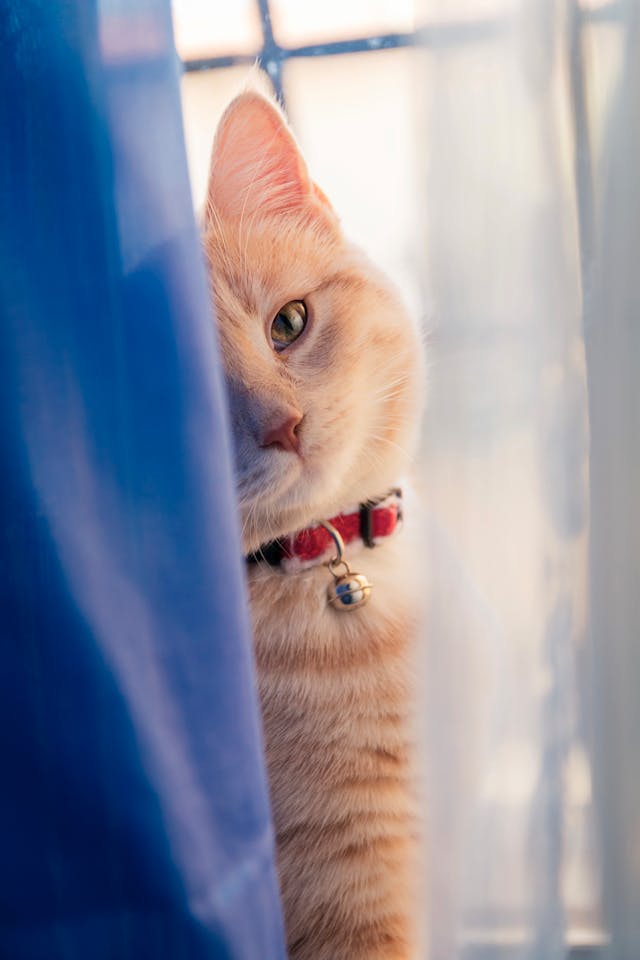The relationship between a pet bird and its owner is one of specific unique quality. Birds bring delight, company, and a little piece of nature into our life with their vivid personalities, great songs, and amusing antics. Though their lifespans are short, birds are still like any other pet, hence losing a dear feathered friend may be a quite emotional and challenging occasion. This comprehensive guide aims to assist and direct bird owners dealing with the passing of their pet bird. From identifying the signs of a bird’s poor health to handling bereavement and considering memorialising your pet, we hope to offer consolation and practical advice all during this difficult time.
- Acknowledging a bird’s declining health.
- Knowing what to do immediately following a bird death.
- Control of loss and loss.
- Remembering your bird of choice.
- Guiding children through the bereavement of a pet bird.
- Looking at a new pet bird
- Determining Indices of Changing Bird Health
Responsible pet owners have to be vigilant and spot early signs of disease or decline in our pet birds. Masters at disguising their ailments, the ability of birds to do this helps them to survive wild against predators. Therefore, by the time a bird exhibits obvious signs, it could already be really sick. Often used as a gauge is:
Verify the Death
Make sure the bird really died. Sometimes birds seem dead when they are very sick or in shock. Look for any life signs including breathing or movement. Take the bird from its cage gently and set it in a spot free of hazards.Visit a veterinarian. You should be unsure regarding the cause of death, think about consulting your avian veterinarian. To find the cause of death, they can advise a necropsy—an autopsy for animals—which can bring closure and assist in avoiding future problems involving other birds you might keep.
Depending on your tastes and local laws, you can take into account several choices for the bird’s body including burial, cremation, or even taxidermy in specific circumstances.
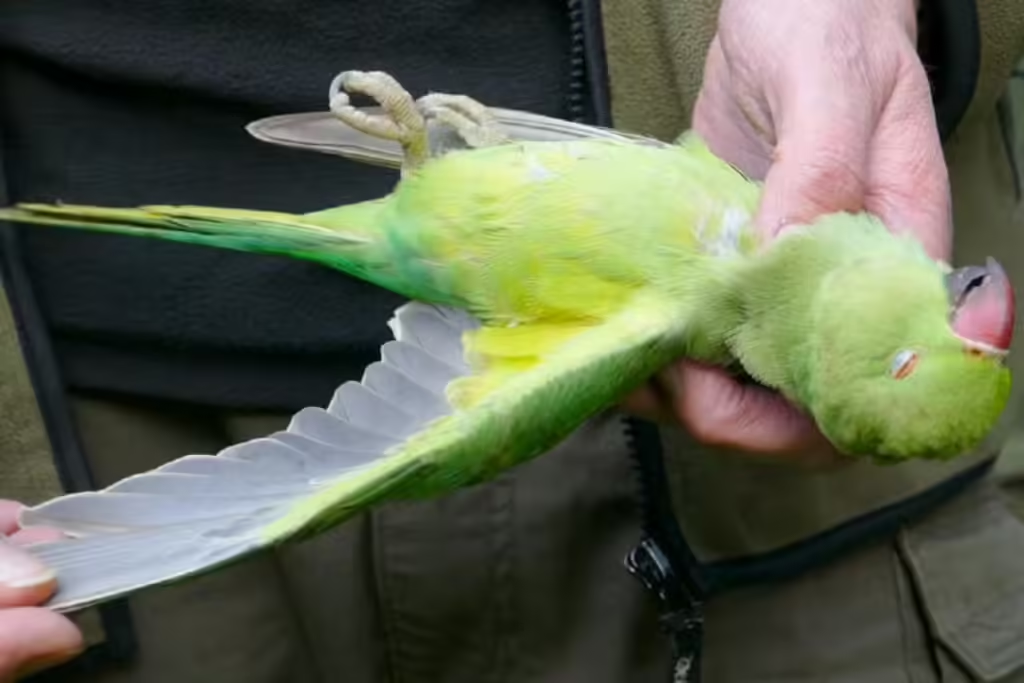
See an avian veterinarian right once if you notice any of these symptoms. Early intervention can sometimes help to greatly enhance the outcome.
Right After a Bird Deaths Action Steps
For both emotional and pragmatic reasons, the first steps you take upon the death of a pet bird could be fairly crucial. Here is what you should do:
Check the death to be sure the bird has perished indeed. When a bird is really unwell or in shock, occasionally she appears dead. Look for any life signs, including movement or breathing.
Carefully remove the bird from its cage and place it somewhere free of danger and pollution.Ask your avian doctor if you are unsure about the cause of death. To find the cause of death, they could suggest a necropsy an animal autopsy—which can bring closure and help to prevent future issues with other birds you might have.
Your preferences and local laws can let you consider numerous options for the bird’s body, including burial, cremation, or maybe taxidermy in some cases.
Handling Loss and Grieving
Should the bird have been suffering, the death of a pet bird could trigger a range of emotions including regret, grief, anger, even relief. Though everyone controls their emotions differently, some strategies could be of use.
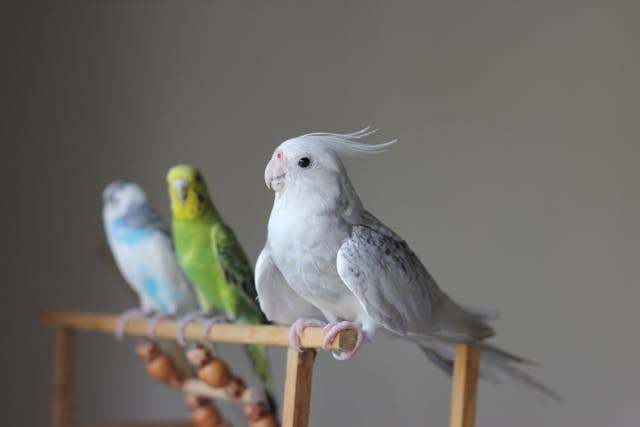
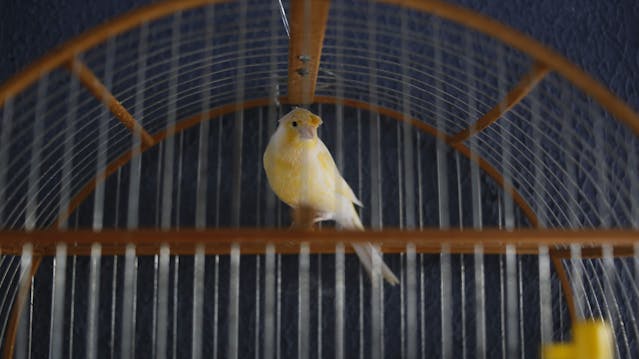
You have to let yourself to cry and acknowledge your feelings. Given your bird was a close buddy, it is natural for one to go through great loss.
Talk to friends or relatives that respect and know your relationship with your bird. Furthermore encouraging pet owners to join internet forums or support groups will promote understanding and friendship.
Making a memorial is one healing way you honor the memories of your pet. This could be via a little ceremony, a unique photo album, artwork, tree or flower planting in their memory.
If your loss seems terrible and you find it difficult to move on, consult a counsellor or therapist who can help you negotiate your feelings.
Valuing Your Pet Bird
Memorializing your pet bird could bring closure and help to maintain their legacy. Here are some moving ways to celebrate your feathered friend.
Get images and mementos of your bird gathered into an album or scrapbook. This can call for remarks on specific recollections, feathers, and pictures.
Commissioning a portrait or creating a work of art involving your bird is one beautiful way to keep its individuality alive in your house.
Some companies concentrate in designing jewelery and other mementos with feathers or ashes from your bird.
Planting a tree, bush, or flower in your bird’s memory will pay a live tribute that flourish over years.
Supporting Young Children Through Pet Bird Loss
Children often have close relationships with their pet birds, hence the loss may particularly be tough for them. These are some guidelines on how small children could handle:
Describe what happened using age-appropriate language, Be Honest Avoid euphemism that might mislead them.
Youngsters should be urged to express their feelings about their bird by writing, drawing, or talking.
Children should be let to assist with memorial activities include image sketching, scrapbook production, or flower planting in the remembrance of a bird.
Young children should be comforted that their gloomy feelings are normal and that it is okay for them to be in loss over their pet.

Assessment of a New Pet Bird
After the death of a beloved bird, some individuals may finally consider bringing a new bird into their home. This is a somewhat personal decision best made after much deliberation. You should find the following useful:
Timing: Getting a new bird is not “right” at any one moment. While some people could feel ready really fast, others might require more time to recover.
Research: Various bird species call for different kinds of care. Look extensively to identify a bird that best suits your tastes and way of life.
Adoption: Look at adopting a bird from a rescue group. Many of the birds in need of homes would make fantastic friends.
Get ready emotionally to connect with a new pet. know that this relationship will be different from the one you had with your former bird.
Finishing
Though losing a dear bird is a sad occasion, consider the happiness and love they brought into your life. Understanding sickness symptoms, behaving responsibly after death, and allowing yourself to honour and grieve your bird can help you to gently and compassionately handle this challenging event.
Furthermore guiding children through their grief and choosing a new pet bird at the proper moment will help promote healing and fresh begins. Remember, your bird will always be important to you; the memories you have will provide you comfort and happiness.


